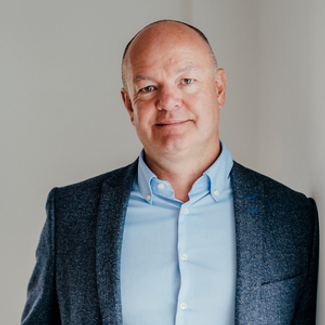We’re halfway through 2025, and there’s plenty to share.
In this edition, we explore the latest industry trends and expert insights. From why discipline (not motivation) is the key to career growth in aviation, to the top hiring challenges for B1 and B2 Engineers, we cover what’s shaping the industry right now. We also speak to one of our consultants at GOOSE, who shares practical advice for both candidates and employers navigating a changing talent market.
Read on...
Key Takeaways
Discipline, consistency, and daily habits are key to career growth in aviation, helping professionals progress even in challenging environments.
Employers hiring B1 and B2 Engineers face talent shortages, regulatory hurdles, and high candidate expectations, while workforce trends emphasise diversity, mobility, and hybrid skill sets.
Sustainable Aviation Fuel (SAF) is creating new roles across engineering, supply chain, and sustainability, offering candidates emerging career pathways and signalling a strategic shift for the industry.

Why Discipline, Not Motivation, Drives Career Growth in Aviation
Success in aviation isn’t just about talent or ambition; it’s about discipline. While motivation gets you started, it’s discipline that keeps you moving forward, especially when things get tough.
But what does discipline mean in a professional setting? And how can you use it to take control of your career trajectory?
In our latest insight, we explore:
Discipline versus Motivation: Why consistency wins every time
The Key Habits of Disciplined Professionals
How Discipline Translates into Career Growth in Aviation
Practical Steps to Build More Discipline in Your Career
Final Thoughts: Discipline is the key to long-term success in aviation
Whether you're aiming for promotion, building new skills, or striving for leadership, it’s your daily habits and consistent effort that will shape your future.

GOOSE's take on the MRO & Technical Services Employment Market
GOOSE offers expert insights on aviation recruitment, along with practical tips for both candidates and employers.
Talent shortage: There’s a significant shortage of skilled engineers due to an ageing workforce, fewer new entrants into the market, and the rapid expansion of fleets. The post-COVID rebound has increased demand, which is especially challenging for smaller MROs.
Regulatory and licensing complexities: Post-Brexit changes have created barriers for cross-border hiring, particularly in the UK. This has limited the availability of engineers with the necessary type ratings and approvals, making it harder for employers to hire from the wider European talent pool.
High candidate expectations: It’s a candidate-led market. Engineers are asking for higher salaries, better rotations, and greater flexibility. Employers that aren’t able to meet these expectations are finding it difficult to compete for top talent.
At GOOSE, we remain well-networked with a global talent pool, including passive candidates. We take a consultative approach with our clients, benchmarking compensation, advising on hiring strategy, and helping them position themselves as employers of choice.
What are the top three ways workforce demographics are shifting in aviation engineering, and how is this influencing recruitment strategies?
Ageing workforce: Many senior engineers are nearing retirement, with fewer people entering the industry to replace them. Employers need to future-proof by investing in early-career talent through apprenticeships, graduate schemes, and technical training, while considering phased retirement to support knowledge transfer.
Increasing diversity:
The industry is gradually seeing more representation, including more women entering engineering roles. To attract and retain diverse talent, employers need to build a strong, inclusive employer brand.
Greater mobility:
Engineers are more open to relocating, with many moving to regions like the Middle East for better pay and lifestyle. Employers should broaden their search internationally and ensure visa and licensing processes are efficient and compliant.
What are the top three recruitment trends you’re seeing in CAMO and technical support roles in response to industry changes?
Hybrid skill sets: Employers are looking for professionals who combine traditional airworthiness expertise with strong digital and compliance capabilities.
Flexible working: Hybrid and remote working options are becoming increasingly expected. Employers offering flexibility are more competitive in attracting talent. However, some professionals still prefer being on-site, especially for roles involving hands-on tasks or team-based collaboration. Our network includes candidates with varied working preferences, allowing us to match the right talent to each environment.
Contract and project-based hiring: Many organisations are turning to contractors for short-term needs like audits, technical reviews, and project-specific work. We support clients by sourcing highly skilled contractors who are ready to step in quickly and deliver results.

Sustainable Aviation Fuel: The Future of Flight
As the aviation industry accelerates its journey toward net-zero emissions, the spotlight is firmly on Sustainable Aviation Fuel (SAF). Backed by ongoing investment and research, SAF is proving to be the most viable short-term solution to decarbonise aviation without requiring major changes to aircraft or airport infrastructure.
Julien Manhes, Head of Sustainable Aviation Fuels and Carbon Dioxide Removal at Airbus, notes:
Using SAF in flight could significantly reduce the climate impact of aviation in the short term
With over 140 airports already supplying SAF and major players like Airbus and Enilive scaling up production and testing, the shift toward sustainable fuel is no longer theoretical; it’s happening. The EU’s proposed ReFuelEU Aviation policy could see SAF quotas reach 70% by 2050, driving transformation across the sector.
"Biofuels are currently the only energy carrier that can contribute to decarbonising aviation"
says Raffaella Lucarno, Head of Biorefining and Supply at Enilive.
What does this mean for the aviation workforce?
New and emerging roles in SAF production, supply chain management, engineering, sustainability strategy, and fuel logistics are gaining prominence.
For employers, this is a call to attract talent with sustainability experience and invest in upskilling current teams.
For candidates, particularly those with technical, engineering or environmental backgrounds, the rise of SAF offers new career pathways at the intersection of innovation and climate responsibility.
As sustainability moves from buzzword to business strategy, aviation professionals who adapt will be best placed to lead the industry into its next era.
Source: Financial Times
Reflecting on a standout few days at EBACE 2025 in Geneva
We had the opportunity to engage with aviation professionals from across the globe.
From flight support providers to MRO facilities and business jet operators, the conversations offered meaningful insights into the current hiring challenges and opportunities shaping the business aviation landscape.
A huge thank you to everyone who shared their perspectives with us. The team is excited to build on these new and existing connections.
What people say...
.png)






